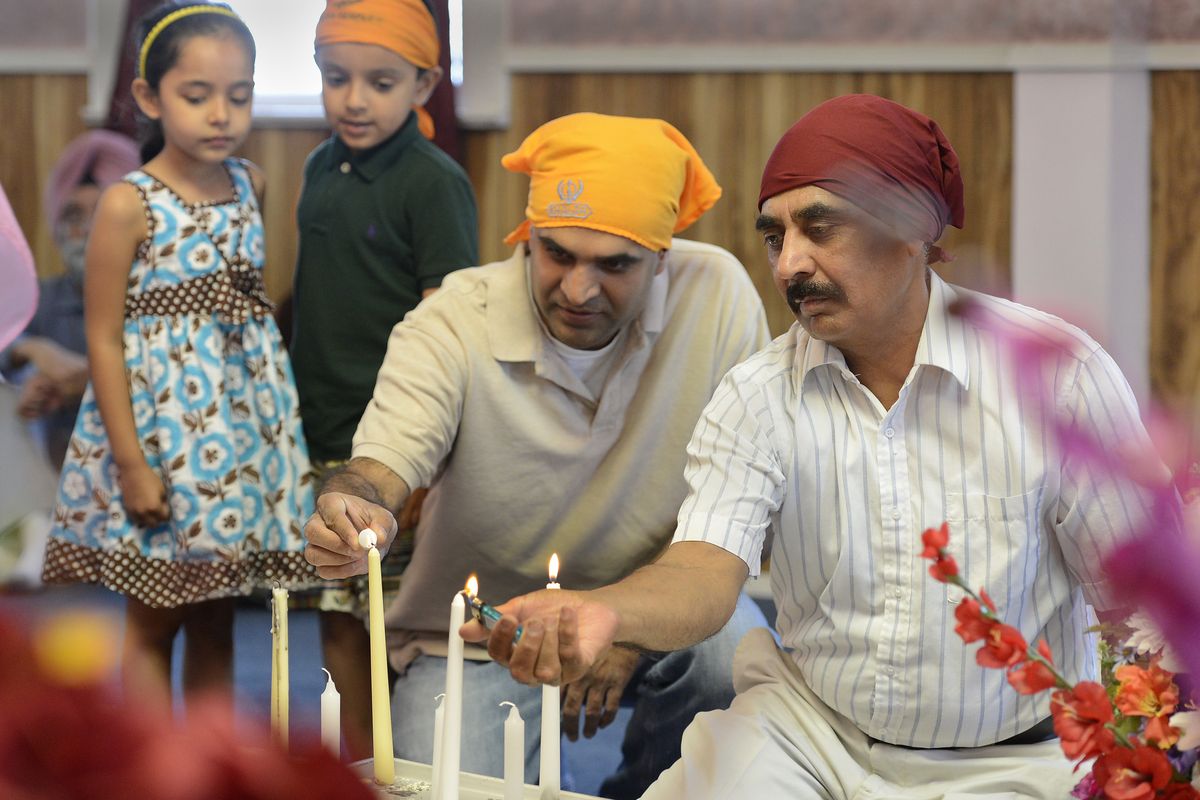Sikhs gather to pray, reflect in Spokane Valley
‘We’re not mad, but we’re sad,’ one member says

Hundreds gathered in Spokane Valley on Wednesday night to share messages of forgiveness and understanding in the wake of the deadly shooting at a Sikh temple in Wisconsin.
The Sikh Temple of Spokane on North Barker Road held a candlelight vigil and prayer ceremony in remembrance of the six people who were killed Sunday when Wade Michael Page walked into a temple in Oak Creek, a suburb of Milwaukee, then opened fire on the worshippers.
About 70 Sikh families live in Spokane County and between 100 and 250 people typically show up to the temple to worship on Sundays, said Kalwant Floura, a member of the congregation.
“This place is open for anybody,” Floura said.
On Wednesday, members of the congregation cooked meals for anyone in attendance and sang hymns and read prayers from the Sikh holy book, the Guru Granth Sahib. Baldev Singh, a member of the congregation, estimated that about 300 people gathered at the temple. Some do not follow the religion but turned out to show support.
A number of the attendees briefly spoke about what people can take away from the tragedy.
John Hancock, the chairman of Friends of Compassion, a local civic organization, expressed his desire to reach out to the local Sikh community.
“I didn’t know any Sikhs until I moved here to Spokane, and I’m very happy to say that I do now,” said Hancock, who used to live in Milwaukee. “I’m glad to be here in your community and my prayers are with you.”
None of the local Sikhs has ties to the shooting victims in Oak Creek, Floura said, but it was important for them to show their support.
“We’re not mad, but we’re sad,” she said. “It shouldn’t happen anywhere, but especially in a religious place where everybody goes and worships.”
Inderbir Bains, from Spokane Valley, stood with three other young Sikhs to tell the crowd that the shooting calls for a deeper understanding of Sikhism. The religion has more than 30 million followers and is one of the fastest-growing in the world, Bains said.
“But this is surprising because many people aren’t aware of the existence of Sikhism,” he said, “and what Sikhs encounter today is a problem of mistaken identity.”
Since the Sept. 11 terrorist attacks, Sikhs have become targets for discrimination and prejudice, he said.
Some speakers also expressed a sense of solidarity following the tragedy.
“One dysfunctional man comes to us, it doesn’t mean we’re going to close our doors,” Singh said.
Following the shooting, details about Page have emerged as a man with ties to white supremacist bands and a history of drinking problems while serving in the Army before his discharge in 1998.